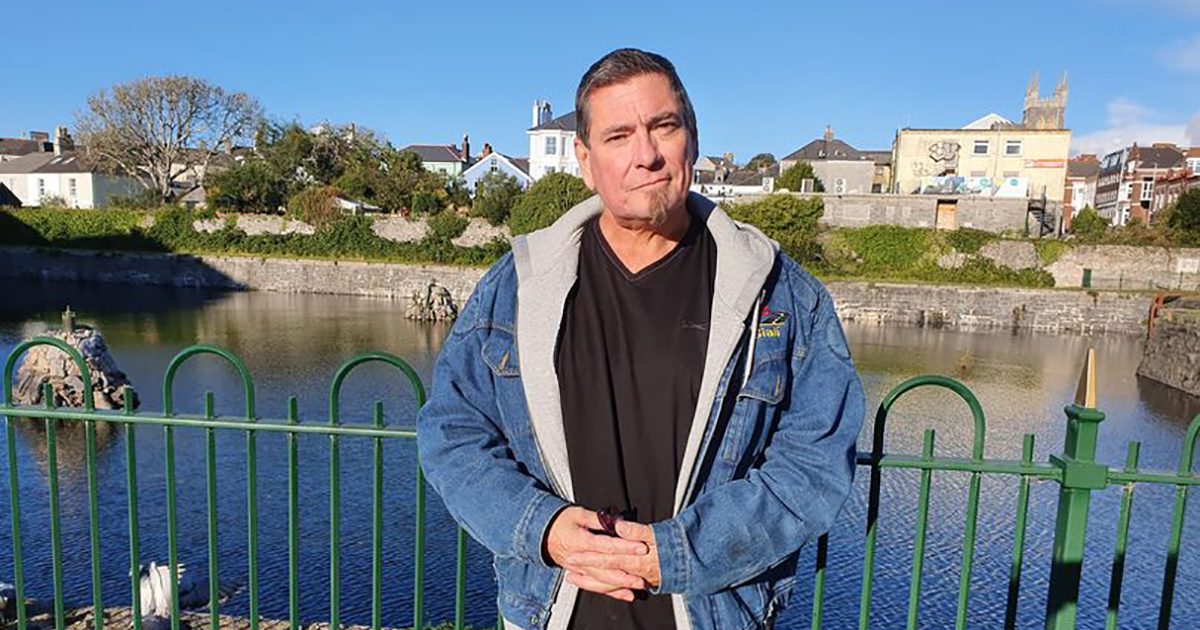The Importance of Oral Cancer Screenings to Catch Disease Early
- John Sanders is crediting a fifth-year dental student with saving his life after she discovered his mouth cancer during a routine appointment.
- Sanders is now using his story to advocate for the importance of increased screenings for mouth cancer, as catching it early saved his life.
- Oral cancer screenings are essential. Checking yourself at home is so simple, and it should be promoted more.
"I'm completely in her debt," Sanders tells PlymouthLive of Jasleen Batra, the now-certified dentist who found his oral, or mouth, cancer.
Read MoreFinding Sanders' Mouth Cancer
Last year, during the Covid-19 lockdown, Sanders visited the University of Plymouth Peninsula Dental School in Plymouth, United Kingdom, for a regularly scheduled dental appointment. There, Batra examined him during his check-up. She ran her fingers along his jawline, starting at his chin. The two had been chatting before the examination about Sander's oral health, which indicated to her that his oral health was otherwise fine. But she found a lymph gland in Sander's mouth that was swollen and hard."I hadn't been in pain at all, but Jasleen found a hard lump under my jaw, which I then felt with my hand," Sanders says. "She calmly explained the need for an urgent referral, and less than two weeks later, I went for an examination and then a biopsy."
"The consultant informed me that I had malignant and aggressive cancer of the tonsils that had spread to the lymph gland and surroundings."
Dr. Allen Ho, director of the head and neck cancer program at Cedars-Sinai Medical Center, tells SurvivorNet that when it comes to some throat cancers, specifically those of the base of the tongue or the tonsil, as well as those caused by the human papillomavirus, oftentimes, patients don’t have any symptoms at all. And when cancer isn’t showing any symptoms, it can obviously be hard to catch early and treat effectively.
(Side note: Human papillomavirus, or HPV, typically causes cervical cancer in women, but it can also cause throat and mouth cancers. “HPV-positive throat cancer typically in the base of the tongue or the tonsil we're realizing that it is a dramatically different disease from HPV-negative cancers of the throat, the tonsil and the tongue base,” Dr. Ho says. “For some reason, the virus loves to embed itself in tonsil tissue, as well as tongue-based tissue.”)
HPV and Cancer Risk: The Basics
Sanders then underwent surgery to have as much of the cancer as possible removed from his tonsils and mouth area. Dr. Ho says this method of treatment surgery is typically the standard of care when it comes to later stage throat cancers, followed by radiation. However, the stage of Sanders’ cancer remains unknown.
Thankfully the cancer was caught when it was, considering Sanders' doctor told him that the cancerous lymph gland had grown by 12 millimeters in just 10 days the time between his diagnosis and surgery. After surgery, he went through chemotherapy and radiation and has been given a good prognosis of survival, as long as the cancer doesn't return.
"It was very fortunate and of great importance to my future health that Jasleen discovered it when she did," he says. "It was luck that I had an appointment, and wish I'd known about checking myself. It's really important that we all know how to do it and speak to a professional if we have concerns."
The Importance of Oral Cancer Screenings to Catch Disease Early
Oral cancer screenings are essential, Batra says. Checking yourself at home is so simple, and it should be promoted more.
"Having a good look around your mouth, including your lips, cheek, tongue, under your tongue, the back of your throat and the top of your mouth with a mirror takes less than a minute a day, but means you would catch any changes early before they become more serious," Batra says.
While fellow cancer warrior Amanda Kouri didn't have mouth cancer, she can attest to the importance of catching cancer early, like in Sanders' case.
When she first began to feel symptoms of lung cancer, doctors wrote it off as her asthma acting up. Nobody thought to give her a CT scan because of her age she was 28. She's lucky that she saw many doctors, and her disease eventually was caught at an early stage, as lung cancer becomes incredibly hard to treat when it gets into the later stages.
"We need to be catching lung cancer early, and the way to do it is to raise money for these new detection methods," she says. But her message resonates across the cancer community: We need to be catching all cancers early, so we have more stories like Kouri's and Sanders' to tell.
Learn more about SurvivorNet's rigorous medical review process.


